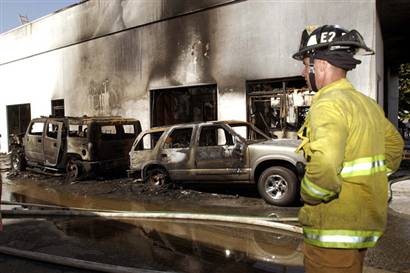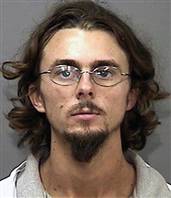Entered into the database on Tuesday, November 15th, 2005 @ 10:50:28 MST
Nov. 21, 2005 issue - The FBI collected detailed data on political activities
and Web postings of suspected members of a tiny environmentalist commune in southern
California two years ago as part of a high-profile counterterrorism probe, bureau
records show. Facing further new disclosures about the matter, the bureau last
week agreed to settle a lawsuit and to pay $100,000 to Josh Connole, a 27-year-old
ex-commune member who had been arrested—and later released—on suspicions
he was one of the eco-terrorists who had firebombed SUV dealerships in the summer
of 2003. But the bureau's rare concession of error, expected to be publicly announced
soon, could bring new attention to what civil-liberties groups say is a disturbing
trend: the stepped-up monitoring of domestic political activity by FBI counter-terror
agents. Connole, an anti-Iraq-war protester, had been living in a Pomona, Calif., vegan
commune when a Joint Terrorism Task Force (JTTF) targeted him after arson attacks
on four nearby Hummer dealers—acts blamed on the shadowy Earth Liberation
Front (ELF), which the bureau considers a domestic terror group. The case was
considered serious enough that Director Robert Mueller briefed President Bush.
After concluding Connole looked like a lanky, goateed suspect caught on surveillance
tape, agents arrested him at gunpoint on Sept. 12, 2003, then raided the commune.
After being interrogated and held for four days, he was released. Another suspect
with no connection to the commune was later arrested and convicted. In their wrongful-arrest lawsuit, Connole's lawyers demanded to know why the FBI
looked at Connole in the first place. Court documents show agents were initially
tipped off by a neighbor to "suspicious" activity at the commune the
night of the attacks. (In fact, says Connole, members were simply helping one
of the residents move out.) Agents placed the commune under surveillance and developed
a political profile of the residents, discovering the owner of the house and his
father "have posted statements on websites opposing the use of fossil fuels,"
one doc reads. Another says the owner had ties to a local chapter of Food Not
Bombs, an "anarcho-vegan food distribution group." Among activities
flagged in bureau docs: the father of the owner had conducted a "one man'
daily protest" outside a Toyota office, was interviewed for an article called
"Dude, Where's my Electric Car!?" and posted info on a Web site announcing
"Stop Norway Whaling!" Critics say such info has been increasingly collected
by agents since the then Attorney General John Ashcroft relaxed FBI guidelines
in 2002. "How does advocacy of electric cars become the basis for suspicion?"
asks Bill Paparian, Connole's lawyer. Bureau officials say they collect such info
only when there might be ties to violence or terrorism. A spokesman declined to
comment on Connole's case, saying that because no settlement has been entered
into the court record, it remains "a pending legal matter." 
A fireman surveys the scene at a California auto dealer where SUVs were
torched
